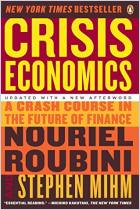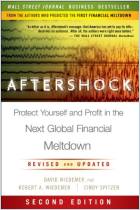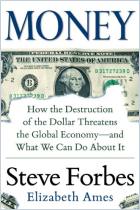Зарегистрируйтесь на getAbstract, чтобы получить доступ к этому краткому изложению.

Зарегистрируйтесь на getAbstract, чтобы получить доступ к этому краткому изложению.
Nouriel Roubini
MegaThreats
Ten Dangerous Trends That Imperil Our Future, And How to Survive Them
Little, Brown US, 2022
Что внутри?
Economic disaster lurks around many corners, says Dr. Doom.
Recommendation
Nouriel Roubini earned his moniker “Dr. Doom” during the mid-2000s housing bubble, but his was the rare voice that accurately predicted the eventual crash. In his latest book, the economist continues to view the world through a decidedly realistic lens. Roubini sees impending disaster around many fiscal corners: He reports that the Federal Reserve and the European Central Bank have grown dangerously political, and he believes the rise of artificial intelligence could lead to levels of unemployment that would make the Great Depression seem mild. This bracing study serves up a long list of reasons why investors and workers should remain wary.
Summary
About the Author
Nouriel Roubini is professor emeritus of economics at New York University’s Stern School of Business, and the founder and chairman of Roubini Macro Associates.























Comment on this summary